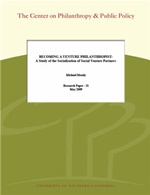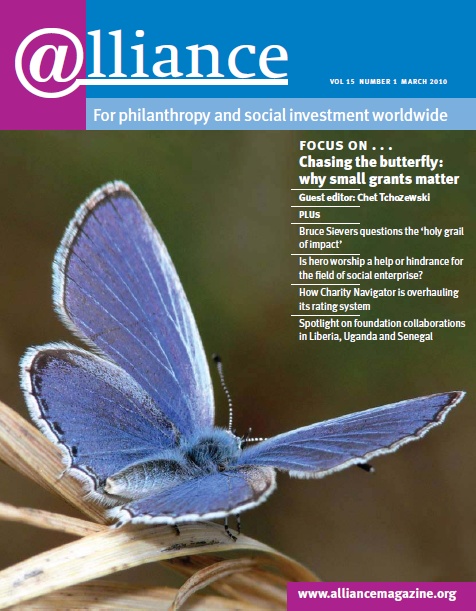A recent report suggests that membership in a peer group is key to increasing donor giving and volunteering. Donor ‘socialization’ – the term used by report author Michael Moody – posits that involvement with a group of fellow donors over an extended period has a significant influence on giving behaviour and that this influence increases as donor involvement increases.
 Produced by the University of Southern California’s Center on Philanthropy and Public Policy, Becoming a Venture Philanthropist: A study of the socialization of Social Venture Partners focused on survey and interview data from participants in the Social Venture Partner (SVP) network. The report concludes that involvement with SVP has the intended effect: nearly all the donors surveyed – 97.7 per cent – reported that they had experienced significant learning since joining SVP; 71 per cent had increased their giving and 86 per cent had changed how they give.
Produced by the University of Southern California’s Center on Philanthropy and Public Policy, Becoming a Venture Philanthropist: A study of the socialization of Social Venture Partners focused on survey and interview data from participants in the Social Venture Partner (SVP) network. The report concludes that involvement with SVP has the intended effect: nearly all the donors surveyed – 97.7 per cent – reported that they had experienced significant learning since joining SVP; 71 per cent had increased their giving and 86 per cent had changed how they give.
The report suggests that non-profits and development professionals working with donors should create more experiential, interactive venues for learning. They should provide opportunities for both intense and sustained involvement, and for peer-to-peer learning, learning about and complementing where donors are coming from.
‘The report confirms what we’ve observed,’ said Paul Shoemaker, executive director of SVP Seattle. ‘A lot of philanthropy is done individually and in silos, but we’ve found that when people work with their peers collectively, impact and dollars are amplified.’
SVP is the largest network of engaged donors operating in North America. There are 25 member organizations with over 2,000 partners who fund and work with hundreds of local non-profits. Fundamental to the SVP model is engagement: as well as money, partners give their time, professional skills and creativity to work with local non-profits to bring about positive social change.
For more information
http://www.svpi.org
To download Becoming a Venture Philanthropist, go to http://cppp.usc.edu/research/reports.html





Comments (0)